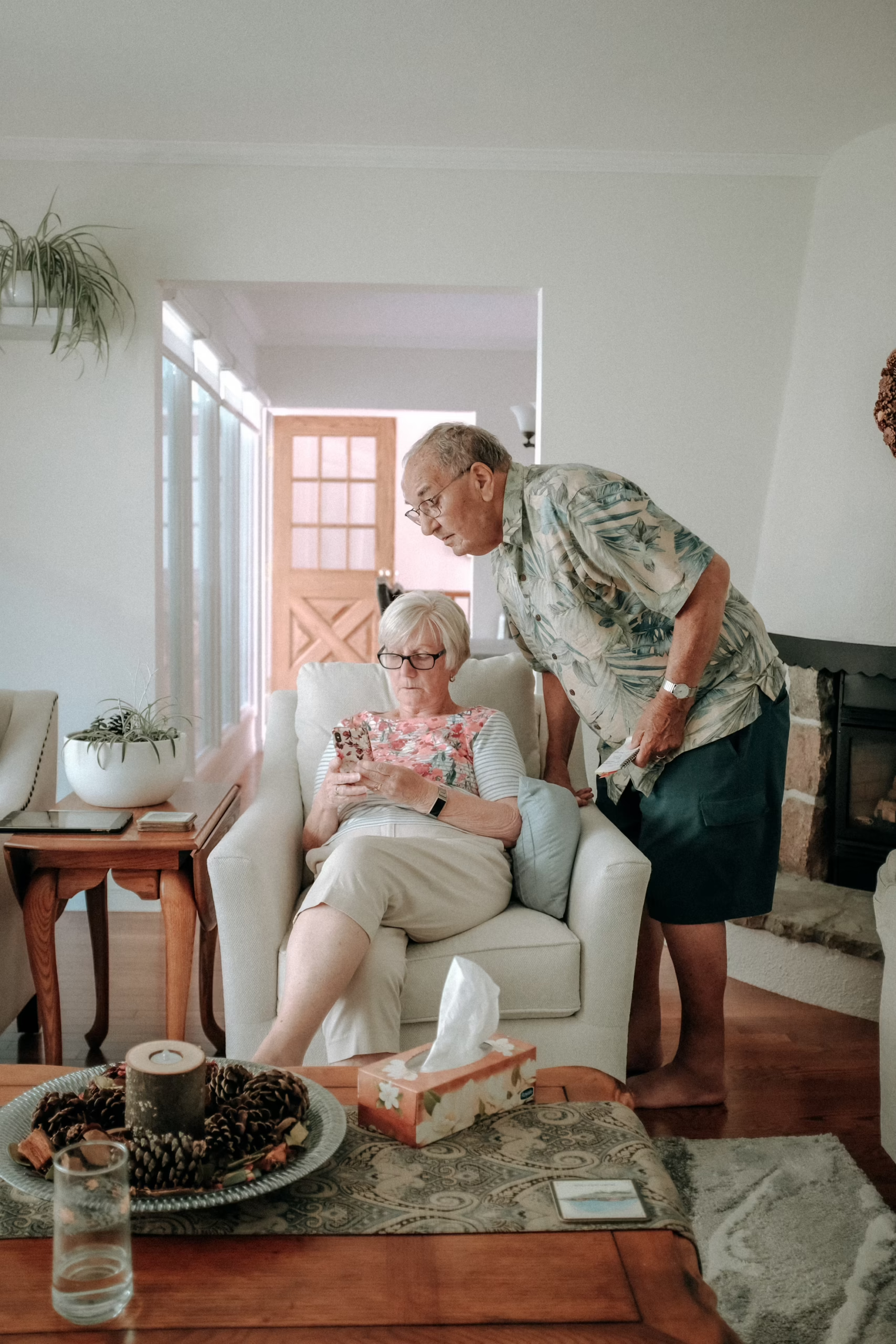Have you ever watched the Netflix documentary The Tinder Swindler? For those who have… scary, right? It’s wild how convincing someone can be when everything looks so real. And for those who haven’t—don’t worry, no spoilers here—but it’s based on the true story of a man who posed as a wealthy jet-setter to scam women out of their money.
Kind of a dramatic way to kick off an article, we know. But it’s the perfect intro to a topic that’s become increasingly relevant: online dating—and more importantly, online safety.
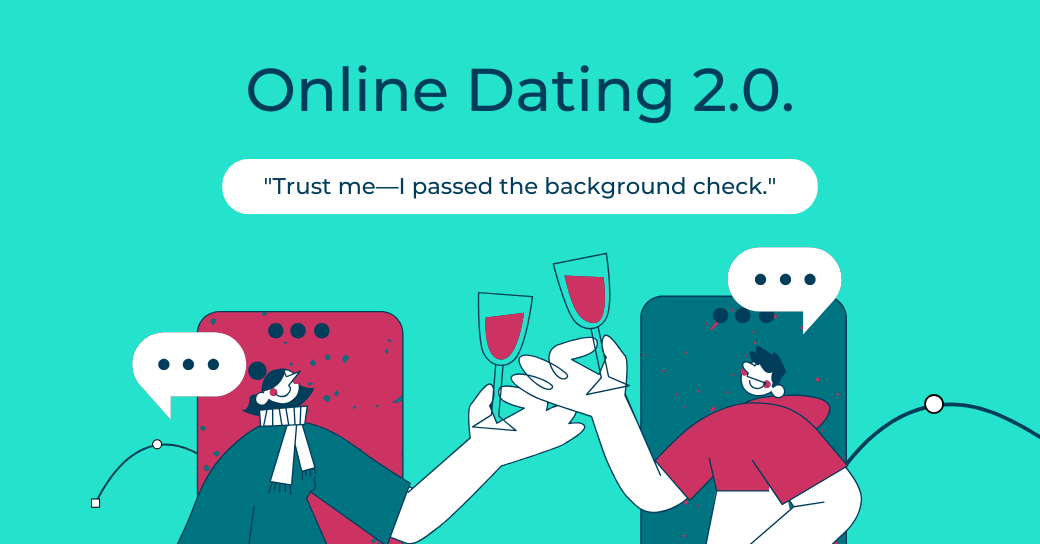
In today’s fast-moving digital world, dating apps are practically the norm. Honestly, who doesn’t know at least one couple who met online? Around 1 in 4 couples now meet through dating platforms. But despite their popularity, many users are feeling burnt out—citing issues like shallow interactions, safety concerns, and difficulty finding genuine connections. In fact, nearly half of U.S. adults believe dating has gotten harder over the past decade.
Younger generations, in particular, are over it. A Dazed Digital report revealed a noticeable dip in user numbers across the UK’s top dating apps since 2023—Tinder lost 600,000 users, Bumble 368,000, Hinge 131,000, and even Grindr saw a drop.
This shift reflects a growing desire to move beyond swipes and algorithms, toward something more real and intentional.
Thankfully, a new wave of dating apps is stepping up—leveraging AI for smarter matches, promoting video-first communication, embracing “slow dating,” and hosting in-person events to create more authentic, human-centered experiences.
Startups and scale-ups are leading the charge—and as they grow, prioritizing user safety isn’t just the right thing to do, it’s a strategic advantage. In this article, we’ll explore how creating safe, trustworthy environments on dating and social platforms isn’t just good ethics—it’s good business.
Before we dive into why safety is such a critical priority in online dating (we’ll get there, promise), let’s take a quick pulse check on the global state of the industry.
The global online dating services market is currently valued at USD 5.64 billion in 2025, and it’s projected to reach approximately USD 11.27 billion by 2034, growing at a CAGR of 8.0% over the forecast period (Precedence Research 2025).That’s not just growth—it’s a major boom.
One of the biggest drivers of this growth? Technology. More specifically: Artificial Intelligence.
AI and machine learning have transformed how dating apps operate—powering everything from more accurate match suggestions to real-time content moderation and trust & safety workflows. These technologies analyze user behavior, personalize experiences, and even detect harmful content or behaviors, creating safer and more engaging environments for users.
For startups and scale-ups, AI isn’t just a value-add—it’s a core enabler of both scalability and safety, especially in a market where trust directly impacts retention
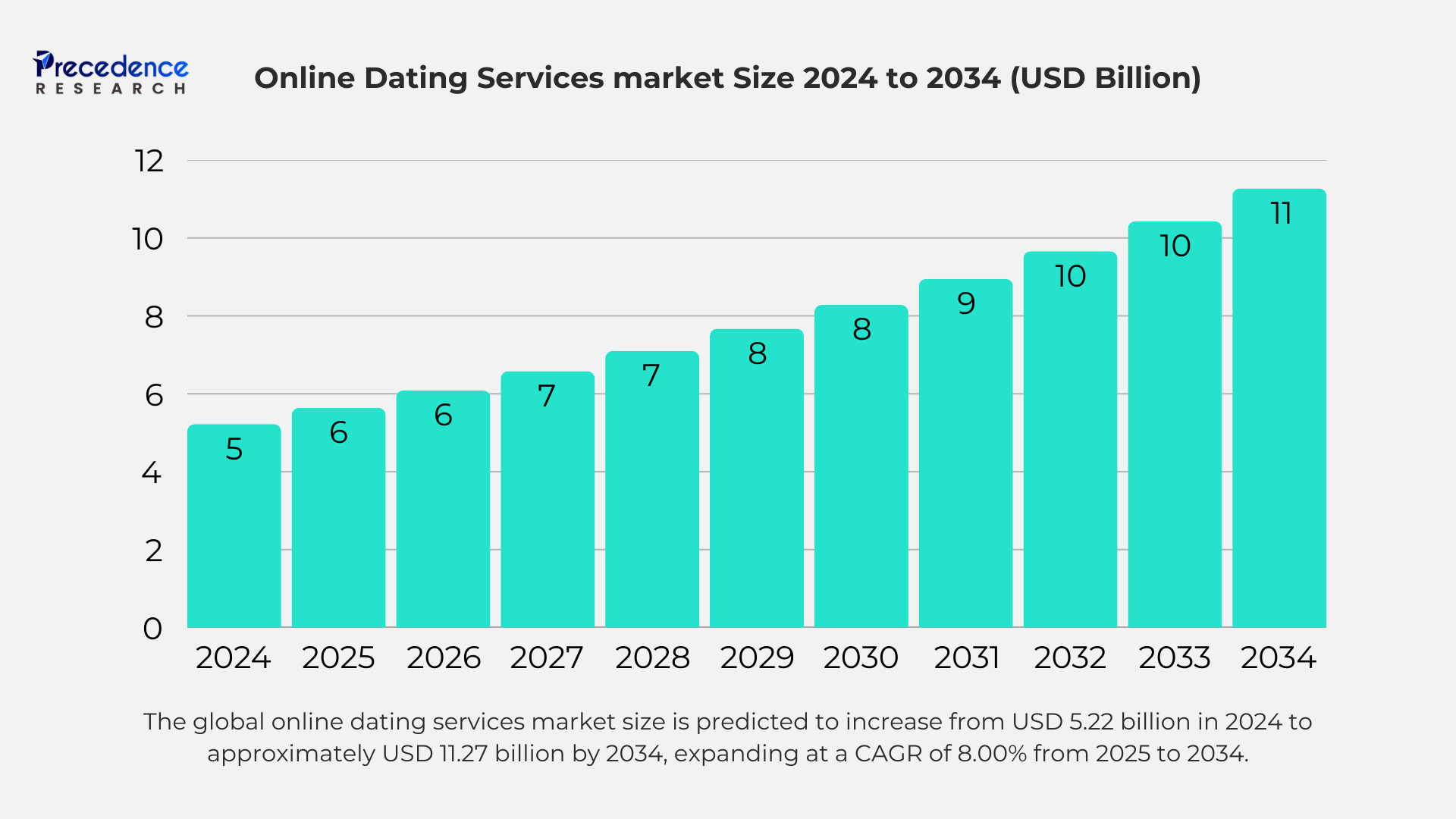

HQ: San Francisco, CA | Stage: Series B. Founded by sisters Arum, Dawoon, and Soo Kang, Coffee Meets Bagel emphasizes quality over quantity by curating one personalized match per day, encouraging meaningful connections. The platform's female-first approach prioritizes user control and privacy, appealing to young professionals seeking serious relationships. To date, Coffee Meets Bagel has raised approximately $23.2 million over four funding rounds. Notable investors include DCM Ventures, WI Harper Group, and Quest Venture Partners.

HQ: Paris, France | Stage: Series C. Launched in 2013 by Didier Rappaport, Fabien Cohen, and Antony Cohen, Happn is a location-based dating app that connects users with individuals they've crossed paths with in real life, blending physical presence with digital discovery. This unique approach has garnered a substantial user base, particularly in urban areas. Happn has raised a total of $22 million over five funding rounds, with investments from firms such as Alven, DN Capital, and Eurazeo.

HQ: London, UK | Stage: Series A. Karma focuses on mindful dating, placing intentionality and wellness at the forefront of its user experience. The platform incorporates features designed to reduce ghosting and promote respectful interactions, aligning with a growing trend toward meaningful connections in the post-pandemic era. In October 2021, Karma secured $25 million in a Series A funding round from investors including Western Technology Investment and NFX.

HQ: Vancouver, Canada | Stage: Acquired by Match Group. Founded in 2003, Plenty of Fish is one of the pioneers in the online dating industry, offering a platform with a vast user base and detailed profiles. Known for its variety and customization options, POF continues to innovate with features like live streaming and advanced matching algorithms. The platform was acquired by Match Group in 2015 for $575 million, integrating it into a portfolio that includes other major dating services.
These companies exemplify the dynamic and diverse nature of the online dating industry, each bringing unique approaches to fostering connections. Their successful funding rounds and innovative features highlight the ongoing evolution and growth within this sector.
Okay, we know you’re probably thinking ‘enough already, tell us about that ROI on safety!’, and we hear you 😉. So without further ado:
In the realm of online dating, user trust is paramount. A platform’s reputation hinges on its ability to provide a secure environment where users feel protected from harassment, scams, and other malicious activities. Prioritizing safety is not merely about compliance; it’s about building a foundation of trust that encourages user engagement and loyalty.
For instance, platforms that have faced safety issues often experience user attrition and reputational damage. Conversely, those that invest in robust safety measures tend to see increased user satisfaction and retention. This correlation underscores the direct impact of safety on a company’s bottom line.
The focus on safety is paramount / crucial / non-deniable…. All other synonyms possible and we’re not the only ones saying so… Charly Lester, RealMe’s Industry Dating Expert says ‘“We found that 63% of dating app insiders believe the risk of scams and fraud in online dating is increasing and that more than half admitted they could be doing more to protect their users from scammers and catfishing.”
Not only that, but take this number $1 billion, it’s huge right? Well that’s the collective lost of victims to romance scams in 2023, in the US (Transunion, 2025)
For online dating platforms, investing in trust and safety isn’t just about compliance or risk mitigation—it’s a growth strategy. From boosting user retention to unlocking new revenue streams, robust safety infrastructure directly influences platform success. The data proves it:
Trust is the cornerstone of user retention. According to TransUnion’s 2025 Dating Survey, 86% of women and 90% of men are more likely to engage with verified users. When users feel protected—against scams, fake profiles, or harassment—they stay longer, engage more, and become loyal advocates. This safety-driven loyalty directly contributes to increased LTV and reduced churn.
Building a safer ecosystem is more achievable than many platforms realize:
This wide consumer readiness presents a low-friction path to deploying features that can significantly enhance trust—and thereby retention and conversion.
Verification doesn’t hinder interaction—it fuels it. Virtually no respondents said profile verification would make them less likely to reach out to others. On the contrary, it increases interaction rates and fosters a more respectful, serious dating environment—leading to higher engagement and better matchmaking outcomes.
In an industry where safety issues frequently make headlines, platforms that lead on trust stand out. A reputation for safety enhances brand equity and drives organic growth via word-of-mouth, positive press, and influencer endorsements. It’s not just about protecting users—it’s about becoming the platform users want to talk about and recommend.
With privacy laws like the GDPR and CCPA placing increasing pressure on tech platforms, proactively embedding safety and verification protocols also shields companies from financial and reputational damage. Avoiding costly litigation and fines—such as the €20 million or 4% global revenue penalties under GDPR—is a direct bottom-line win.
Remarkably, 22% of women and 26% of men say they’d be willing to pay for their own background checks to boost credibility—and 38% of women and 41% of men would pay for checks on others. This reveals a clear revenue opportunity for platforms to introduce premium verification features, improving safety while generating new income streams.
Bottom line? Safety isn’t a checkbox—it’s a differentiator. It’s the catalyst for growth, engagement, trust, and retention. For startups and scale-ups in the dating space, investing in user safety is one of the smartest moves you can make to scale sustainably in an increasingly competitive ecosystem.
The importance of safe spaces is clear. So why aren’t all startups and scale-ups actively investing in safety measures?
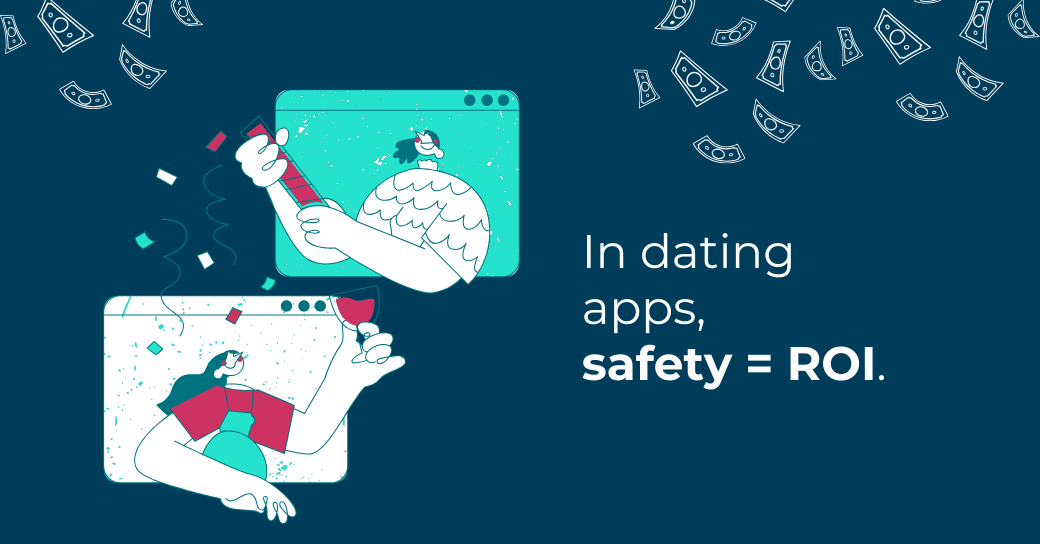
While the ROI of user safety is clear, many early-stage and scaling dating platforms face considerable hurdles when trying to build secure, trustworthy experiences from day one. These challenges are often structural, but they’re not insurmountable—and understanding them is the first step toward solving them.
Startups typically operate under tight financial and operational limits.
Opportunity: Partnering with specialized trust & safety vendors or BPO providers can reduce the operational burden and allow startups to implement scalable safety measures without needing large internal teams.
For successful startups, growth can be a double-edged sword.
Opportunity: Early investment in modular, API-based tools—like third-party verification, automated content scanning, or device fingerprinting—can help maintain consistency as you scale.
The threat landscape in online dating is fast-moving:
Opportunity: Leveraging machine learning for anomaly detection and behavioral risk scoring can help identify threats proactively—before they impact real users.
Startups often overlook legal risk until it becomes a crisis:
Opportunity: Embedding trust and safety into product design from the MVP stage helps mitigate long-term legal and brand risks.
Finally, startups must navigate the tension between frictionless onboarding and effective risk controls:
Opportunity: Employ invisible or low-friction safety layers, such as device reputation checks, phone verification, and sentiment analysis, to minimize disruption while maintaining protection.
In short: For startups and scale-ups in online dating, building for safety isn’t optional—it’s foundational. But with smart tooling, thoughtful partnerships, and a proactive mindset, even lean teams can build secure, trusted platforms that scale confidently and responsibly.
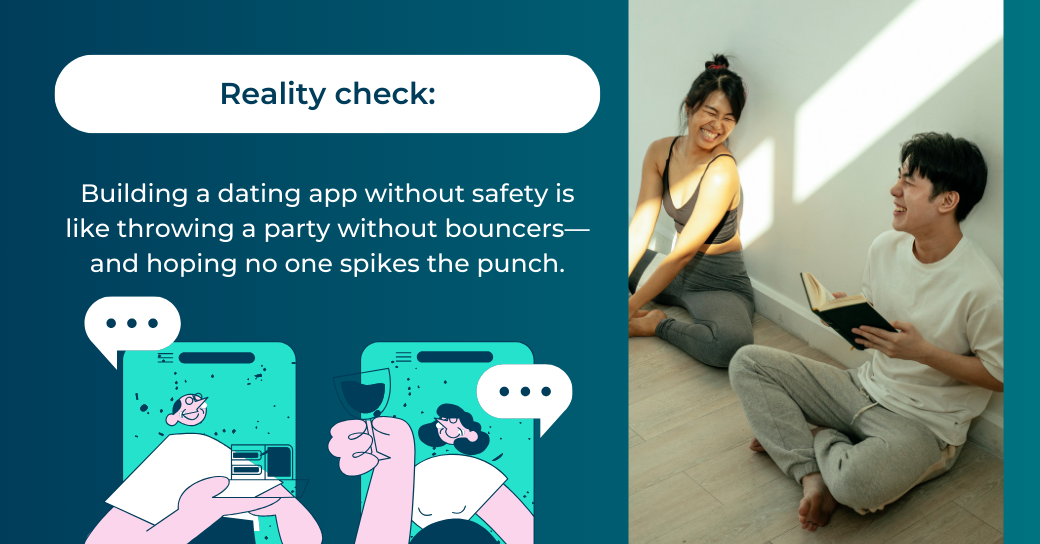
For startups and scale-ups navigating growth in a fast-moving and risk-prone industry like online dating, outsourcing trust and safety operations can be a game-changer. Instead of scrambling to build in-house expertise from scratch, companies can partner with seasoned providers who bring global experience, tested playbooks, and scalable infrastructure to the table.
Why Outsourcing Makes Strategic Sense:
Outsourcing doesn’t mean losing control—it means gaining a partner who helps you protect your users, reputation, and long-term growth. (PS: Check out our podcast episode with Refurbed, if you want to hear it from someone else ;))
Trust isn’t built in one step—it’s cultivated throughout the entire user journey. The most successful dating platforms infuse safety into each phase of the experience, ensuring users feel secure from signup to first match and beyond.
Key Touchpoints to Prioritize:
Every safety feature should send a clear signal: “You’re safe here—and we’ve got your back.”
Whether you’re pre-Series A or mid-Scale, this checklist will help you build safety foundations that grow with your user base:
Bonus tip: Create an internal safety dashboard to track real-time violations, resolution times, and emerging risks.
In today’s online dating ecosystem, safety is no longer a “nice-to-have”—it’s a growth driver, differentiator, and reputation protector.
Startups and scale-ups that embed safety into their DNA are better equipped to:
By partnering with an experienced outsourcing provider (AKA us….) and designing user journeys with safety at the core, these companies can build not only secure platforms—but also resilient brands that stand the test of scale.
In love and in tech, trust is everything. Build it early. Invest in it always (DROP THE MIC).
